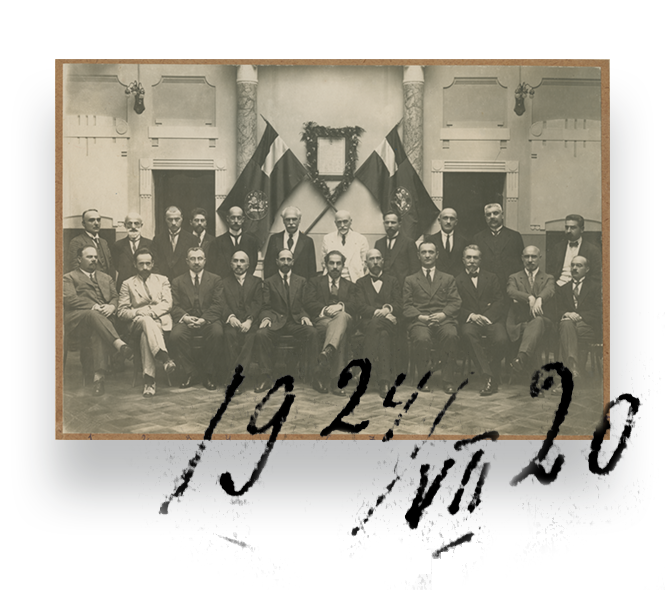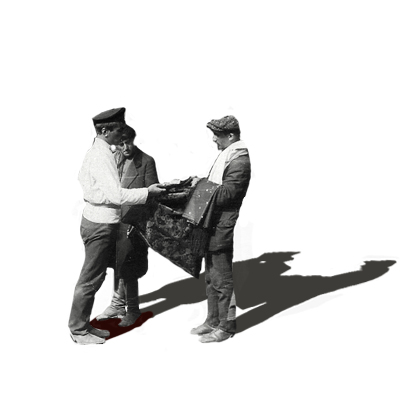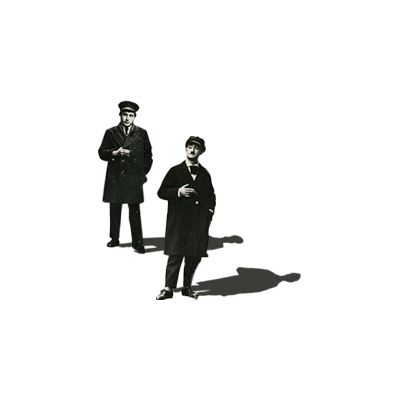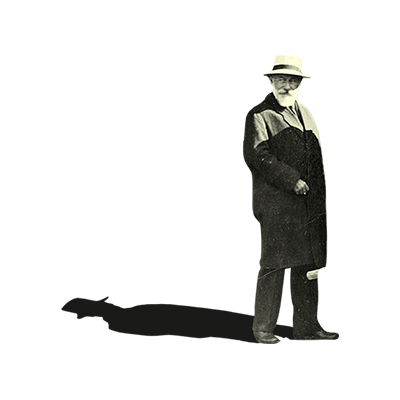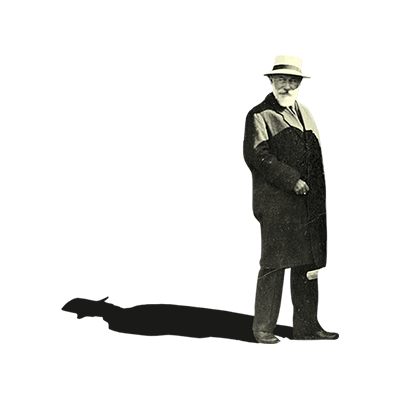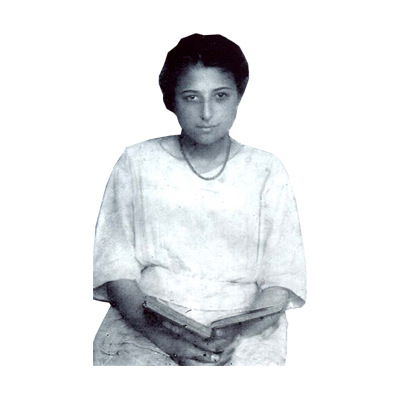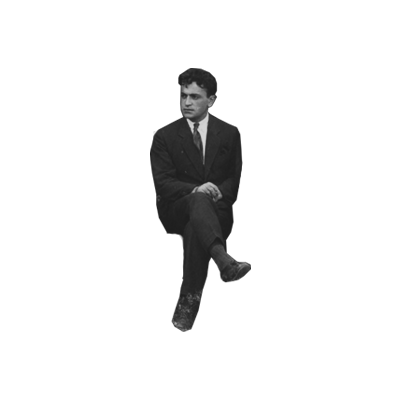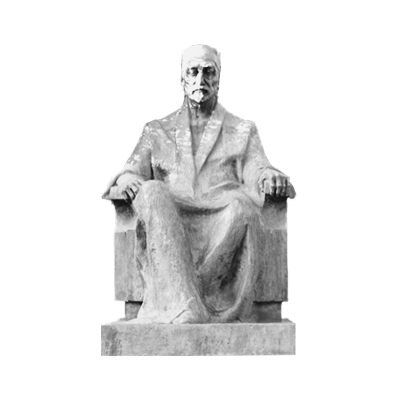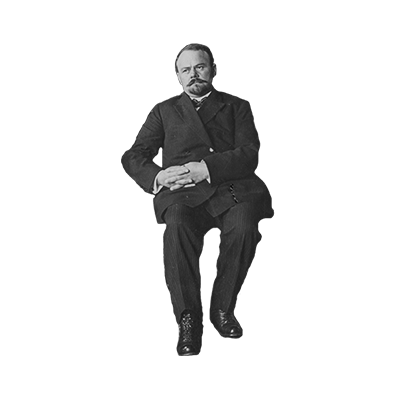Akaki Chkhenkeli Akaki Chkhenkeli
Social-Democrat, Minister of Foreign Affairs 1874-1959Social-Democrat, Minister of Foreign Affairs 1874-1959
1874-1959 1874-1959





Biography
Akaki Chkhenkeli was born to a large and boisterous family in the village of Okumi (Samurzakano), on 19 May 1874. His parents were the quintessence of absolute honesty and humanity. Raised in such a family, it is little wonder that the greatest virtues Akaki acquired in the future were humanistic ideals, kindness, charity and, most importantly, infinite commitment to his homeland. After finishing the Khoni school, Akaki enrolled at the Tbilisi Seminary where, becoming close to the illegal movement of seminarists, he began to gain an insight into the ideas of social-democracy. Upon expulsion from the Seminary, he continued his studies in Europe. Akaki Chkhenkeli was one of the outstanding thinkers of the 1890s. He dedicated all his life to education and development. Akaki Chkhenkeli studied legal sciences at the universities of Kiev, Moscow and Petersburg. Later, he studied “Theory and Practice of Labour Movement” in Berlin, “National Cause” – in Vienna, “Political Movement” in Paris, “Rivalry between England and Russia in Asia” – in London. In 1907 he graduated from the Leipzig University and proceeded to his studies in the Geneva University.
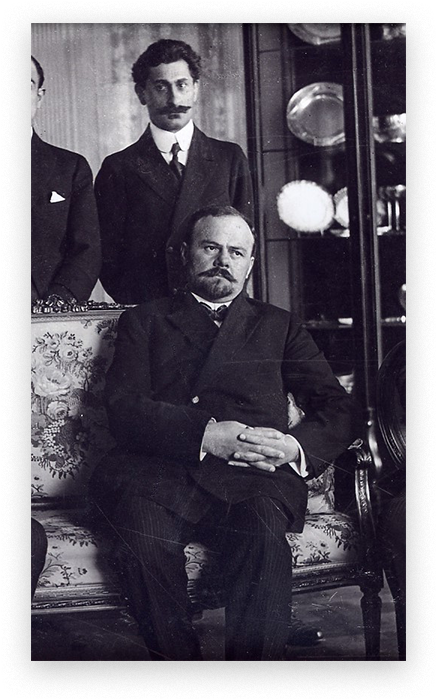
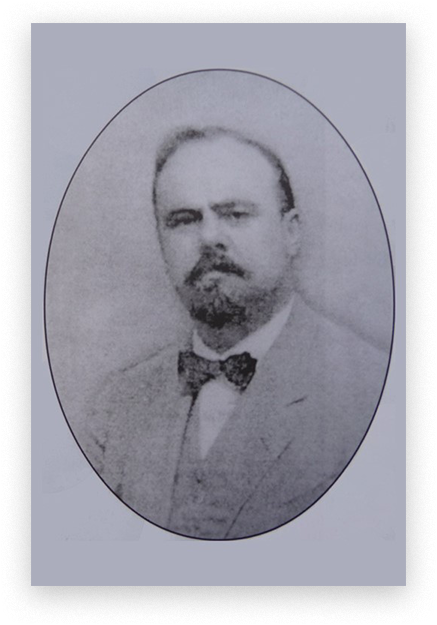
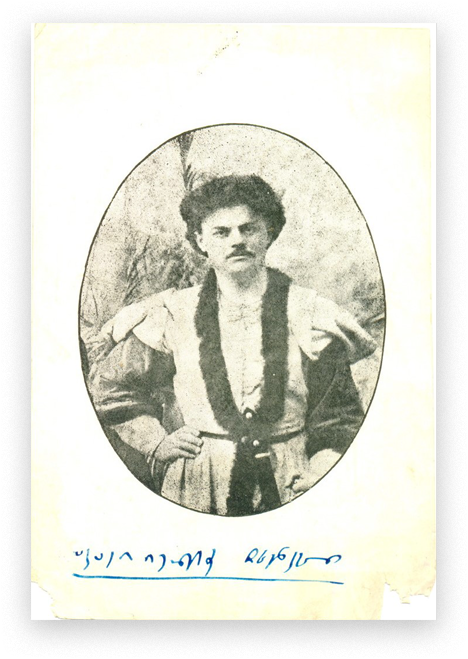
Education
In parallel to studies, he remained active in public life combining the tasks of working for social-democratic parties and Georgian printed media, participating in student movements and attending socialist congresses and conferences. He channeled all his knowledge, experience and diplomatic skills into boosting the further development of his country, fighting for independence and building up national sentiments. On 26 January 1918, acting on instruction from the Georgian National Council, Akaki Chkhenkeli founded Georgian University. “Dear fellow citizens, I have been entrusted by the National Council of Georgia to launch the first Georgian university!”
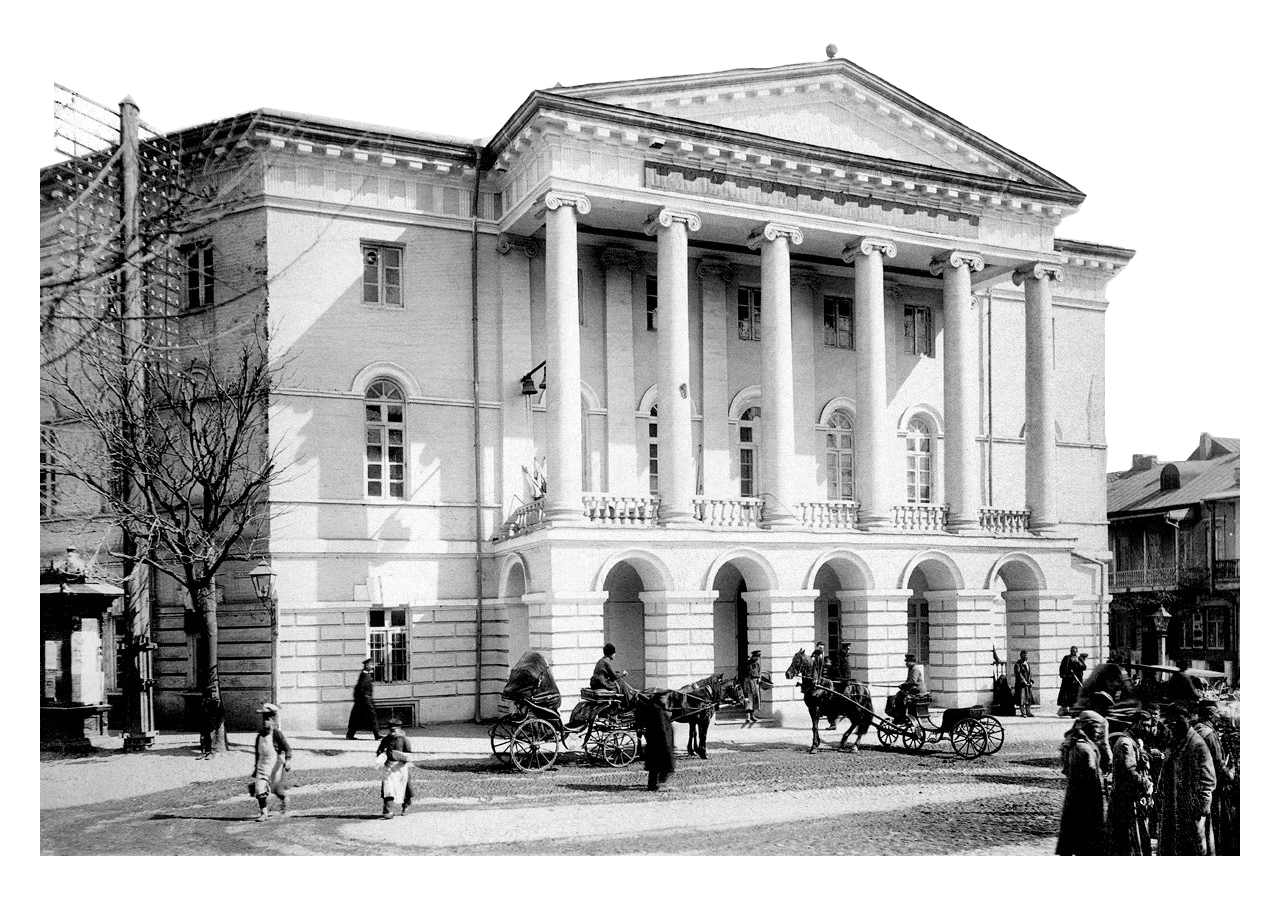
The situation in 1918
Keeping on the frontline in the fight against Russia’s occupational policy, Akaki Chkhenkeli was relentless in his efforts to lead the country to independence. Akaki Chkhenkeli takes all the credit for avoiding the aggression of the bolshevized Russian troops fleeing the front in January 1918 by redirecting them to Baku and thus preventing their clashes with the newly formed Georgian armed units and the People’s Guard in Tbilisi that would inevitably cause further escalation of violence. Until Georgia’s gaining independence, Akaki Chkhenkeli kept writing long and well-founded letters to the National Council of Georgia and the leader of the Social-Democratic Party, Noe Zhordania, insisting on immediate declaration of independence of Georgia
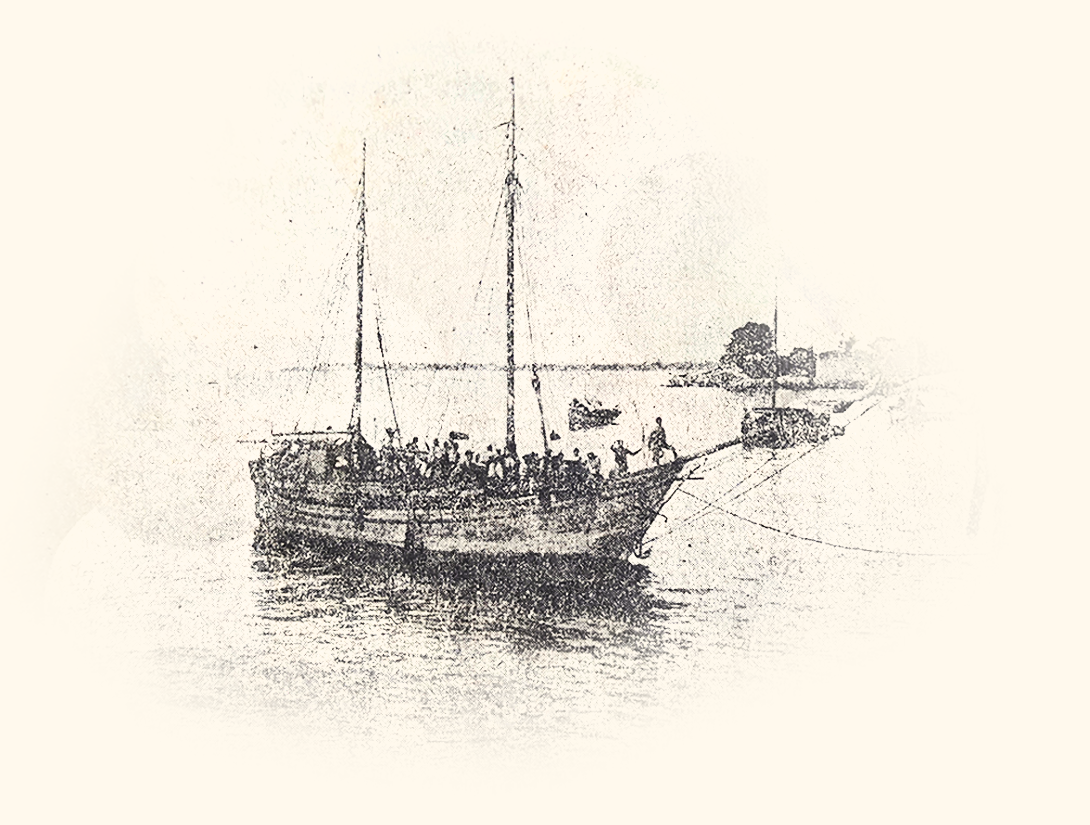
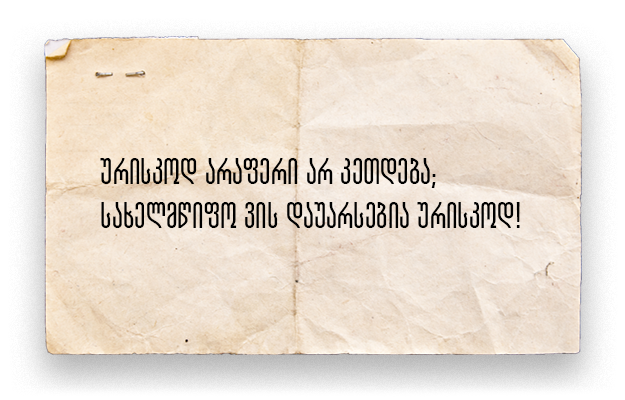
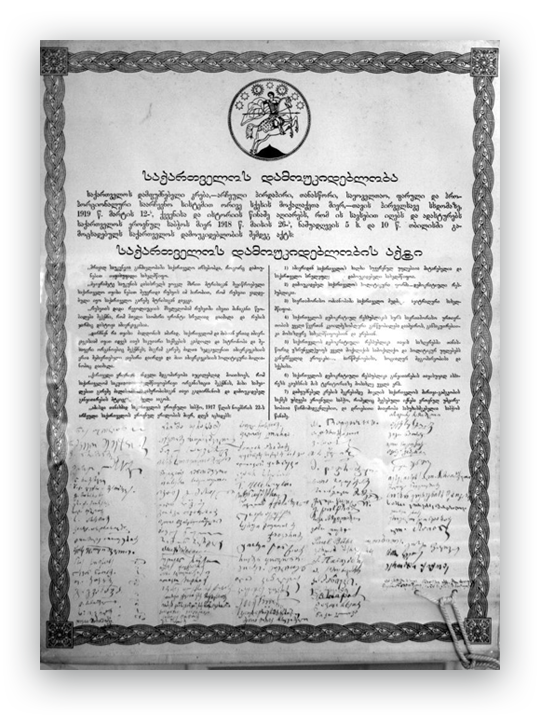
On 26 May 1918, Georgia restored its independence.
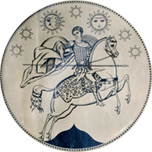
It is a tribute for Akaki Chkhenkeli’s talent and vision that on 26 May 1918, after a lapse of 117 years, Georgia restored its independence. On 26 May 1918, the National Council appointed Akaki Chkhenkeli as Minister of Foreign Affairs of the provisional government of Georgia.
| Ratified: | on 26 May 1918 |
| Signed by: | National Council of Georgia |
| Purpose: | Declaration of independence of Georgia |

Members of the provisional government:
- Ak. Chkhenkeli Head of Government and Minister of Foreign Affairs
- N. Ramishvili Minister of Internal Affairs
- A. Khatisov Minister of Finance
- Kh-B. Melik-Aslanov Minister of Roads
- P-Kh. Khoisky Minister of Justice
- Gr. Giorgadze Minister of the Military
- N. KhomerikiMinister of Agriculture
- N-B. Usubekov Minister of Public Education
- M. Gajinsky Minister of Trade and Industry
- A. Saakiani Minister of Food
- R. Kachaznuni Minister of Social Care
- A. Erzinkian Minister of Labour
- I-B. Haidarov State Controller
